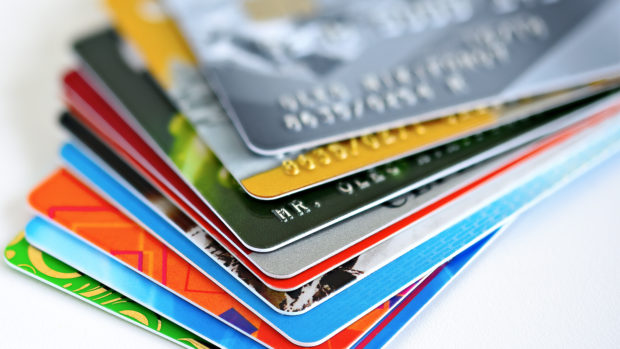What Happens to Credit Card Debt After Death?
Dealing with the financial aftermath of a loved one’s passing can be overwhelming, especially regarding credit card debt. Understanding what happens to credit card debt after death is crucial for individuals and their families.
Joint ownership, estate value, and applicable laws significantly determine how credit card debt is handled. In this article, we will shed light on the responsibilities of family members when it comes to debt inheritance.
What Happens to Credit Card Debt When Someone Dies?
In most cases, credit card debt being passed on to another individual result from joint credit card ownership. Couples may open a joint credit card account, or a parent may cosign for a child. People may be surprised that they are being held responsible for another’s debt; the credit companies may have attached the individual to the account when it was created after a quick signature approval.
Related Articles
5 Tips to Consolidate Credit Card Debt
Here Are the 5 Best Ways to Negotiate Credit Card Debt
Can Family Members Inherit Credit Card Debt?
In most cases, family members are not personally responsible for paying off the credit card debt of a deceased loved one. The responsibility usually lies with the dead person’s estate.
However, there are exceptions to this rule. A family member who co-signed or jointly held the credit card account with the deceased individual may be liable for the remaining balance. It’s best to review the terms and conditions of the credit card agreement. Furthermore, seek legal advice to determine the obligations of family members in such cases.
What Should You Do if a Family Member Dies with Credit Card Debt?
The more organized a person is when handling the credit card debt of a deceased person, the better. There are many important steps to ensure all accounts are managed properly.
The most important step is to gather all the information. Look for any credit accounts the deceased person has left behind and notify the companies of the recent passing. This process may be grueling and tedious, but it is vital.
For this one, they will require documentation such as the death certificate. The individual should try to obtain copies of these essential records. Also, the account should be asked for closure, and the remaining debts be made known.
Ensuring that no further use comes to the credit card account is also a crucial step. Although it may sound obvious, if the partner of a deceased person continues to use the credit card, it can result in brutal financial consequences. This only applies if the person using the card is not a joint account holder. Nothing changes if they are on a joint account, and they can continue using the card as normal.
Aside from contacting the credit card companies, the social security administration, community property state, and major credit bureaus should also be alerted to freeze the deceased’s credit. Requesting a credit freeze will stop anyone from being able to access their credit file, which can help protect them from identity theft. Always follow up in writing to make sure documented proof is attained.
Once everything is in order, payments should be sent and maintained if applicable. In any case, a legal attorney should be consulted when handling credit card debt after death.
Read More: Applying for a Home Loan: 5 Things You Need to Know
How to Avoid Inheriting Credit Card Debt?
Taking on someone’s credit card debt after death can be life-changing and financially damaging for authorized users, such but not limited to negatively impacting their credit score and not being approved when applying for a credit card. Fortunately, there are ways to avoid debt problems after someone dies. Divorced couples should always sever any joint accounts upon ending their marriage. If an ex-spouse dies, the living partner will not be legally obligated for the deceased’s debt. Family members should also invest in life insurance to help cover any unexpected costs after death, like credit card debt. Individuals should also regularly check credit card reports to know which accounts their names are attached to.
Although it may seem like a good idea at the time, individuals should be extremely cautious when opening accounts for other people. Unless the individual can regularly monitor the performance and make regular payments, keeping the overall balance low might not be the best idea to cosign for another person’s credit card. Much like cosigning for a car or an apartment, as soon as the primary individual cannot pay or stops paying, it becomes the cosigner’s responsibility.
How Does Estate Pay Debt?
When a deceased person leaves behind debt, a credit report is requested, and the state will try to get the value returned to them by seizing the individual’s assets. The estate is everything that a person owns up until their death. The estate beneficiary being used to repay the debt will likely notice this impact. If the estate can cover the debt, anything leftover will be disbursed to the beneficiaries. If a significant debt is left behind, the remaining balance of inheritance could be decreased.
When a person with credit card debt dies, their estate is probated or disbursed to cover the debts and then passed to the beneficiary according to their will. During that time, creditors automatically have priority to cover the debt amount. If the beneficiary is not otherwise legally tied to the debt, they are not legally liable for the rest of the debt amount. However, if a family member or friend was a cosigner of the account, it becomes that person’s responsibility to cover any remaining debt.
Read More: Secured vs. Unsecured Loan: Which Is The Best Option?
SUMMARY
In conclusion, understanding what happens to credit card debt after death is crucial for individuals and their loved ones. Credit card debt can be handled differently depending on various factors such as joint ownership, estate value, and applicable laws.
In most cases, credit card debt is paid off from the deceased person’s estate, and family members are not personally responsible for the debt unless they co-signed or jointly held the credit card account. Promptly notifying credit card companies, closing statements, and providing necessary documentation is essential to managing the deceased person’s credit card debt.
Protecting the deceased person’s credit by notifying relevant authorities, such as the social security administration and credit bureaus, is important to prevent identity theft. Additionally, individuals can avoid inheriting credit card debt by severing joint accounts and regularly monitoring their credit reports. Regarding estate distribution, creditors typically prioritize covering the debt amount before the remaining assets are disbursed to beneficiaries.
Consulting with legal professionals is advised to navigate the specific laws and regulations surrounding credit card debt after death. By proactively managing financial responsibilities and maintaining open communication, individuals can help alleviate potential financial burdens for their loved ones in the event of their passing.
Frequently Asked Questions
How can credit card companies be notified of a person’s death?
To inform credit card companies about the death of an individual, it’s important to contact them directly. Start by gathering the necessary documents, such as the death certificate and relevant account information. Contact the customer service department of each credit card company and inform them about the situation. They will provide instructions on the next steps, including sending copies of the death certificate, notifying the credit reporting agencies, or submitting additional documentation as required.
What happens to unused credit card rewards after someone dies?
The treatment of unused credit card rewards after someone passes away depends on the credit card issuer’s policies. Sometimes, the rewards may be forfeited and cannot be transferred or redeemed by the deceased person’s estate or family members. However, some credit card companies allow the prizes to be transferred to a designated beneficiary or saved by the estate. You’ll need to review the terms and conditions of the specific credit card program or contact the issuer to determine their policy regarding unused rewards.
Can creditors collect credit card debt from an estate without assets?
Creditors have the right to make claims against an estate to collect outstanding credit card debt. However, if there are no assets in the estate or if the estate is insolvent, meaning it lacks sufficient funds to cover the debts, the creditors may not be able to recover the outstanding balances. You should consult with a legal professional to understand the specific laws and regulations governing creditor claims in your jurisdiction.
Published on February 22, 2019; Updated on May 15, 2019; Updated on June 28, 2023.




